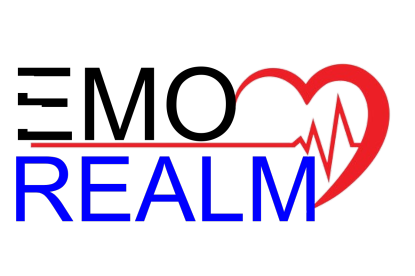Introduction to Mental Health
Mental health covers your emotions, thoughts, and how you connect with others. Because it affects thinking, mood often shifts based on inner balance. When stress hits, the way you act depends heavily on mental condition. Relationships change when mindset wavers or strengthens over time. Choices reflect what’s going on inside, whether clear or clouded. Handling everyday challenges gets easier if emotional fitness improves. A steady mind helps life feel more grounded, real, and worthwhile.
Understanding Mental Health
Mental health and mental illness might seem alike, yet they’re actually different things.
Mental well-being means someone’s able to handle daily stress, tap into their skills, stay productive on the job – while also giving back where they live.
Mental illness means problems messing with how you think, feel, act, or handle emotions.
Genetics, surroundings, or body functions can affect how someone feels mentally. Knowing this helps catch issues sooner while guiding better care.
Common Mental Health Disorders
Anxiety Disorders
Worries that won’t quit, constant dread, or staying away from specific scenes – that’s what issues such as general anxiety, sudden panic attacks, or being uneasy around people often look like.
Depression
This state means constant low mood, no enthusiasm for everyday things – also body signs like shifts in eating or rest patterns.
Bipolar Disorder
Folks swing from high spirits – like mania or near-mania – to deep slumps of sadness.
Schizophrenia
A serious issue messing with how a person thinks and sees things, causing experiences like hearing voices, holding false beliefs, also confused talking or actions.
Eating Disorders
Things like anorexia, bulimia, or binge eating shift how people act and think about food, their bodies, or weight.
Signs and Symptoms of Mental Health Concerns
- Emotional Indicators
- Persistent sadness
- Anxiety or fear
- Irritability
- Hopelessness
- Physical Indicators
- Shifts in how much you rest or eat
- Low energy
- Unexplained physical pain
- Behavioral Indicators
- Social withdrawal
- Shaking up everyday habits
- Substance use
- Causes of Mental Health Disorders
- Genetic Causes
- A past of mental struggles in the family can make someone more at risk.
Environmental Causes
Things like trauma, abuse, or big life changes might spark mental health problems – sometimes out of nowhere. Or maybe after a slow build. Either way, they weigh heavy on your mind. Not everyone reacts the same though.
Psychological Causes
How someone handles pressure depends on their character, how they deal with tough moments, or whether they bounce back quickly – each part shapes mental strength in daily life.
How Mental Health Affects Daily Life
Mental wellness shapes how you do at your job, get along with others, or feel in your body. When mood or thinking struggles show up, output dips, tension grows between people, meanwhile chances rise for issues like high blood pressure or slower healing.
Mental Health Across Age Groups
Children
Worries that won’t go away, trouble paying attention in class, or grades slipping – these could all point to something deeper going on.
Adolescents
Young people might feel worried, down, or struggle with food because friends expect things, classes get tough, also figuring out who they are.
Adults
Common challenges involve stress, anxiety, and depression linked to work, relationships, and financial responsibilities.
Older Adults
Feeling down, being alone, or dealing with memory issues like dementia happens a lot – especially when health gets worse or people pull away.
Mental Health and Gender
Men
Guys usually feel pressured not to ask for support – this links to more suicides. Yet society keeps pushing that norm without realizing the cost.
Women
Women often face anxiety or depression – hormones shift, plus stress from society plays a role.
Non-binary and Transgender Individuals
People face more mental health struggles because of unfair treatment, shame, or not getting the help they need.
Cultural Influences on Mental Health
Cultural views affect how folks see emotional struggles, whether they reach out for support, or stick with therapy. Because of that, in certain places, these issues get labeled as weak or strange – so many avoid getting help even when it’s necessary.
The Role of Social Media in Mental Health
Social media might help you feel close to others or give comfort – yet it sometimes brings pressure, envy, hurtful messages, or makes you doubt yourself. Setting limits on when and how you use it could keep your mood more steady.
Mental Health in the Workplace
Good workplaces care about mental health by offering help with stress, support services, or just letting people talk openly. Because of this, teams often work better and feel more connected.
Mental Health and Physical Health
The way your thoughts and body connect runs deep. When mood or stress struggles show up, they often drag physical shape down – while ongoing aches or sickness can make emotions harder to manage. Moving regularly gives both sides a boost – eating real food does too – so does getting enough rest.
Strategies for Maintaining Mental Health
Mindfulness Practices
Mindfulness keeps people focused on now, while calming their minds at the same time; it also supports better control over feelings.
Stress-Management Techniques
Take slow breaths or try quiet focus – both help calm your mind. Picking good moments for tasks works just as well. One thing after another, these steps cut down stress without hassle.
Healthy Lifestyle Habits
Staying active most days helps your mood stay steady. Eating good food works hand in hand with movement to keep emotions balanced. A solid bedtime routine matters just as much – without it, feelings can go off track fast.
Seeking Help for Mental Health Concerns
Finding help at the right moment makes a real difference. While psychologists focus on behavior patterns, psychiatrists can also manage medication if needed. Therapists guide you through tough emotions, whereas counselors often target specific life challenges. Each approach fits different personal situations.
Medication and Mental Health
Medicines like those for depression, anxiety, or psychosis may help ease symptoms. However they need a doctor’s guidance to prevent problems and stay safe.
Alternative Therapies for Mental Health
Yoga helps you unwind while lowering tension.
Meditation helps you notice feelings better – also calms your mind. It lowers stress while boosting self-awareness slowly over time.
Art therapy uses making things to help sort out feelings – creativity becomes a tool for understanding yourself.
Music therapy helps meet emotional and mental health needs through tunes – using rhythms to support mood or thoughts while offering comfort when life feels tough.
The Importance of Support Systems
A solid circle of people – like family or buddies, maybe even group meetings – brings comfort, gets how you feel, sometimes helps with daily stuff. Because of these ties, bouncing back feels possible, staying steady later on works better.
Mental Health During Crises
When things get tough, keeping daily habits helps – so does reaching out to someone you trust or talking with a counselor. Healing takes time; it’s not something that happens overnight.
The Future of Mental Health Care
The area’s changing – new treatments are popping up, drugs are getting better, apps and tech help track progress, while updated rules try to open doors so care reaches more people easily.
Frequently Asked Questions
What does mental health mean?
Mental wellness includes how you feel, your thoughts, besides interactions with others.
How do I know if I need help?
Prolonged low mood, constant unease, trouble handling daily tasks – these might mean it’s time to reach out. When rest feels broken or eating habits shift hard, help could make a difference. Struggling to cope? Talking to someone often helps more than pushing through alone.
Do lots of people deal with mental health issues?
Yep, loads of folks across the globe deal with mental health issues every day.
Who should I go to when I need support?
Shrinks, therapists, coaches – also caseworkers – learn how to help folks out.
Do you need medicine to get better?
Sometimes not. Pills might work – yet talking helps just as much, or even better. Small daily shifts? They matter too.
What’s a good way to support a person dealing with emotional challenges?
Listen openly, suggest expert care when needed – stick by them no matter what.
Conclusion
Mental wellness matters in daily living. When people learn what boosts their mood, notice when things feel off, yet know where to turn for support, they start moving toward steadier days. Good tools exist – like expert advice or caring friends – that help folks face tough thoughts while shaping a calmer, more rewarding path ahead.




